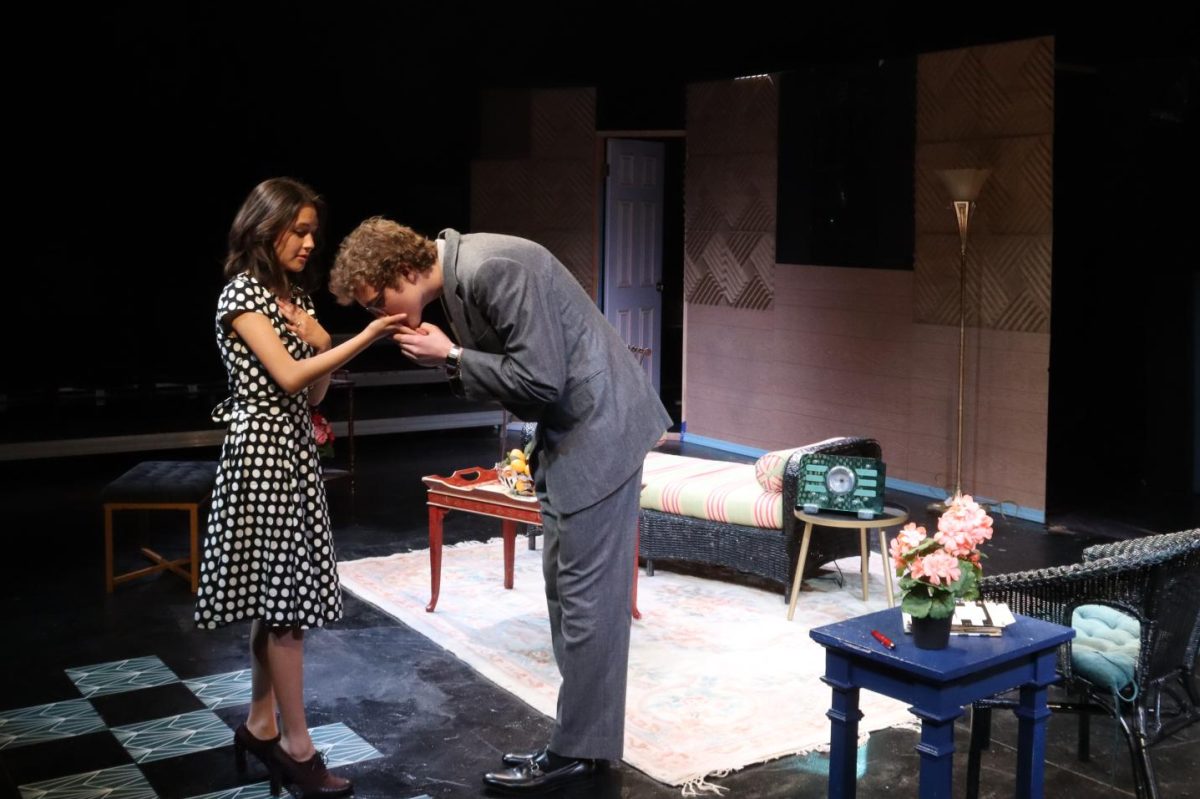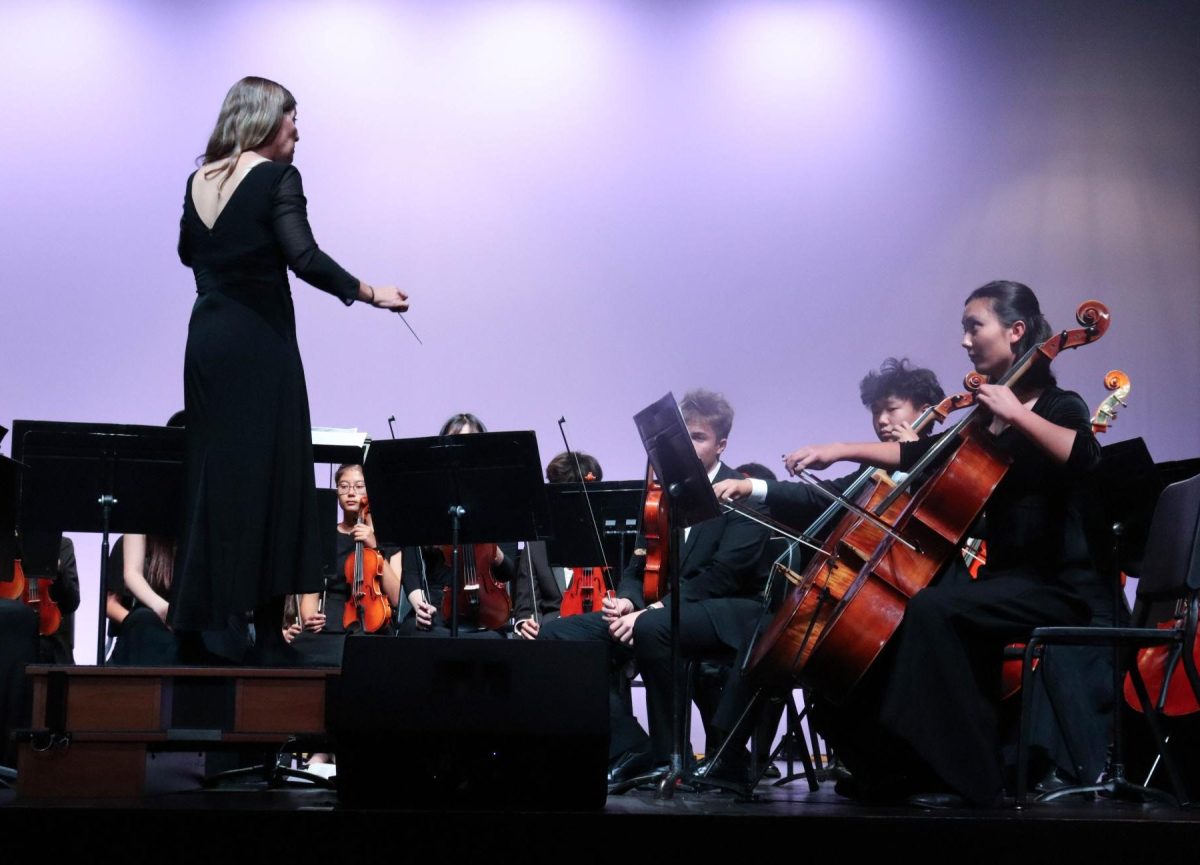“Please laugh.” That’s what a cast member told us before we went to the show. We didn’t need to be told twice.
In what would be the final production directed by retiring theater teacher Marinee Payne (alongside student director Nolan Greer (12)), the TP Players chose to say goodbye with laughter. With seven performances of the comedy “Lend Me a Tenor” from April 30 to May 2 and May 6 to 9, TP Players closed the curtain not just for the school year, but for 33 years of performances under Payne’s guidance.
In classic comedy fashion, this play follows a series of things gone wrong. When world-renowned tenor Tito Merelli (Eric Lee (12)) is believed to be dead before his performance of Pagliacci, Max Garber (Gideon Jakobs (12)) is tasked with secretly performing in his place. As Merelli awakens to fans praising a performance that he never gave, Max and manager Henry (Henrietta) Saunders (Camila Torres (12)) scramble to keep up the facade and figure out what is happening. In a climax full of misunderstandings, mistaken identities and an abundance of moving doors, the play delivers chaos and entertainment in the best of ways.
Each actor slipped into their distinct roles from the moment they stepped onstage. In the opening conversation between Maggie Saunders (Claire Frederico (12)), Henry (Henrietta) Saunders, and Max about Merelli’s upcoming performance, Max is immediately portrayed as weak-willed and timid, a spin on the archetype of the reluctant hero. In contrast, Saunders is obsessive, intense and perfectionistic, determined to make the show go on. Merelli’s “shut up” in a comically exaggerated Italian accent never failed to make the audience burst into laughter. The characters were hilarious, over-the-top and yet incredibly human in their own ways; in the end, you couldn’t help but become attached to all of them.
While the play at first glance was simple, driven by a series of mix-ups, underlying stories and character growth, it had depth. One arc that particularly stood out was the subtle shift in Max’s self-confidence. Initially afraid to showcase his talents despite his vocal talents, Merelli’s encouragement and the urgency of the situation left Max no choice but to disguise himself as Merelli and perform. As much as this play kept us laughing, we noticed ourselves marveled by each character’s development by the very end.
“Lend Me a Tenor” also featured perhaps the most visually and technically complex set of the year. The thrust stage pulled the audience close to the action; from the front row, we saw spit-out fruit fly through the air, a bottle of pills roll across the ground and the actors’ changes in facial expression. The set looked into two rooms, a sitting room on the left and a bedroom on the right, with multiple doors leading into and out of the hotel suite. From the front door, to the door leading into the Merellis’ bedroom, to the bathroom and closet door, each entrance and exit brought a sense of anticipation. All doors also held a secret at some point in the play: Maggie hiding in the closet and Max hiding in the bathroom to keep his identity secret, as well as all the scheming happening in the rooms themselves. It was quickly apparent that every time a doorknob turned, a twist was imminent.
The setup also allowed a demonstration of two perspectives at once. For instance, as Max frantically dressed up for the opera performance, the audience could see Merelli waking up in the other room, very much not dead; giving the audience the full picture set the stage for hilarious uses of dramatic irony.
In laughter, there is love, and sometimes a little sadness too. “Lend Me a Tenor” was a play that had it all, a perfect closing to the end of the school year, and an era of theater at TPHS. In a play where so many things go wrong, it was the right way to say goodbye.












